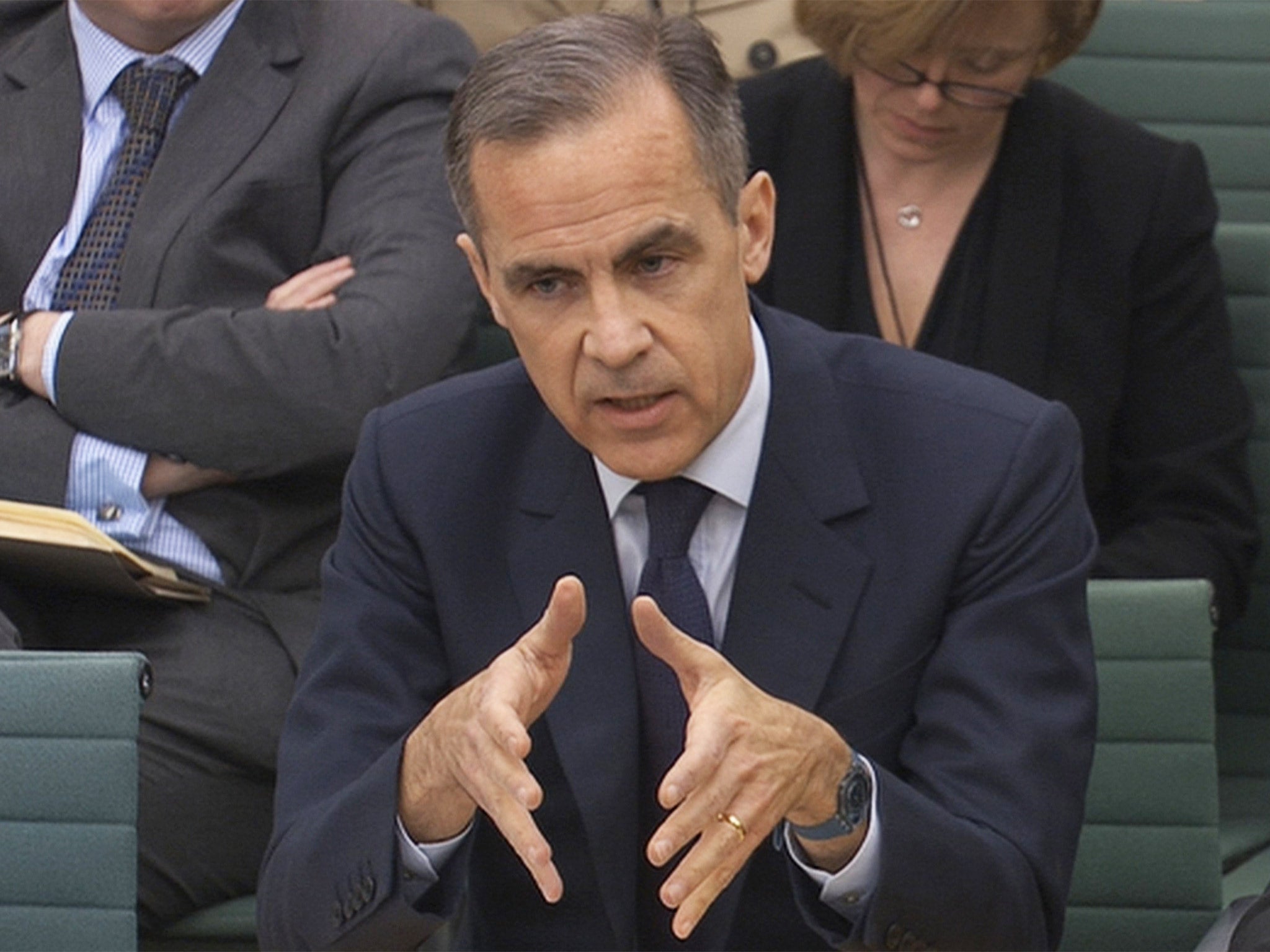EU referendum: Bank of England governor Mark Carney says Brexit is Britain's 'biggest domestic risk'
Pro-Leave MPs criticise ‘pro-EU’ speculation and warnings of City instability

Your support helps us to tell the story
From reproductive rights to climate change to Big Tech, The Independent is on the ground when the story is developing. Whether it's investigating the financials of Elon Musk's pro-Trump PAC or producing our latest documentary, 'The A Word', which shines a light on the American women fighting for reproductive rights, we know how important it is to parse out the facts from the messaging.
At such a critical moment in US history, we need reporters on the ground. Your donation allows us to keep sending journalists to speak to both sides of the story.
The Independent is trusted by Americans across the entire political spectrum. And unlike many other quality news outlets, we choose not to lock Americans out of our reporting and analysis with paywalls. We believe quality journalism should be available to everyone, paid for by those who can afford it.
Your support makes all the difference.The Bank of England was embroiled in the acrimonious argument over Britain’s membership of the European Union last night after its Governor warned that Brexit could cost jobs, affect the housing market and hit the City of London.
Mark Carney’s intervention was welcomed by Downing Street and the Remain campaign, but left him facing accusations of abandoning the Bank’s political neutrality to push the case for a vote on 23 June to stay in the EU.
The bitter exchanges followed a three-hour appearance before MPs in which he described the prospect of leaving the union as the “biggest domestic risk” that Britain faced and forecast that Brexit would trigger a protracted period of financial instability.
Mr Carney also claimed that some financial institutions were already making contingency arrangements to leave the City because of the uncertainty over the referendum.
His comments came a day after it emerged that the Bank was ready to offer emergency loans to lenders in June to combat fears of the financial system seizing up in the event of a vote to leave.
Mr Carney said EU membership “reinforces the dynamism of the UK economy” and added that the risk of leaving the EU had been a factor pushing down the pound’s value. He said: “The issue is the biggest domestic risk to financial stability, because, in part, of the issues around uncertainty.”
The Governor insisted the Bank was not advising people how to vote and it would “do everything in our power to discharge our responsibility to achieve monetary stability and financial stability” if the UK did vote to leave.
But he added that he could not “provide a blanket assurance that there would not be issues in the short term with respect to financial stability”.
Mr Carney said the impact of Brexit on the City would depend largely on the deal negotiated by the Government. Asked whether companies could relocate from the City, he replied: “One would expect some activity to move. Certainly there is a logic to that. There are views that have been expressed publicly and privately by a number of institutions that they would look at it. I would say a number of institutions are contingency planning for that possibility – major institutions, foreign headquartered, which have their European headquarters here.”
In clashes with the Governor, the Tory MP Jacob Rees-Mogg said: “It is beneath the dignity of the Bank of England to be making speculative pro-EU comments.”
Mr Carney flatly denied that the Bank had been pushed by Downing Street into highlighting the risks of Brexit.
“We are expressing views that are the views of the institution. We are not leaned on by anybody. It would have no effect if they tried.”
Lord Lawson, the president of Conservatives for Britain, accused the Canadian Mr Carney of making his pro-EU comments to please Chancellor George Osborne and enhance his job prospects after he leaves the Bank.
The pro-Brexit Culture Secretary, John Whittingdale, argued that Britain’s prosperity faced greater threats from Chinese economic instability, conflict in the Middle East and volatility in the oil price than from the referendum result, and that “telling people that Armageddon would follow is both wrong and dangerous”.
Join our commenting forum
Join thought-provoking conversations, follow other Independent readers and see their replies
Comments